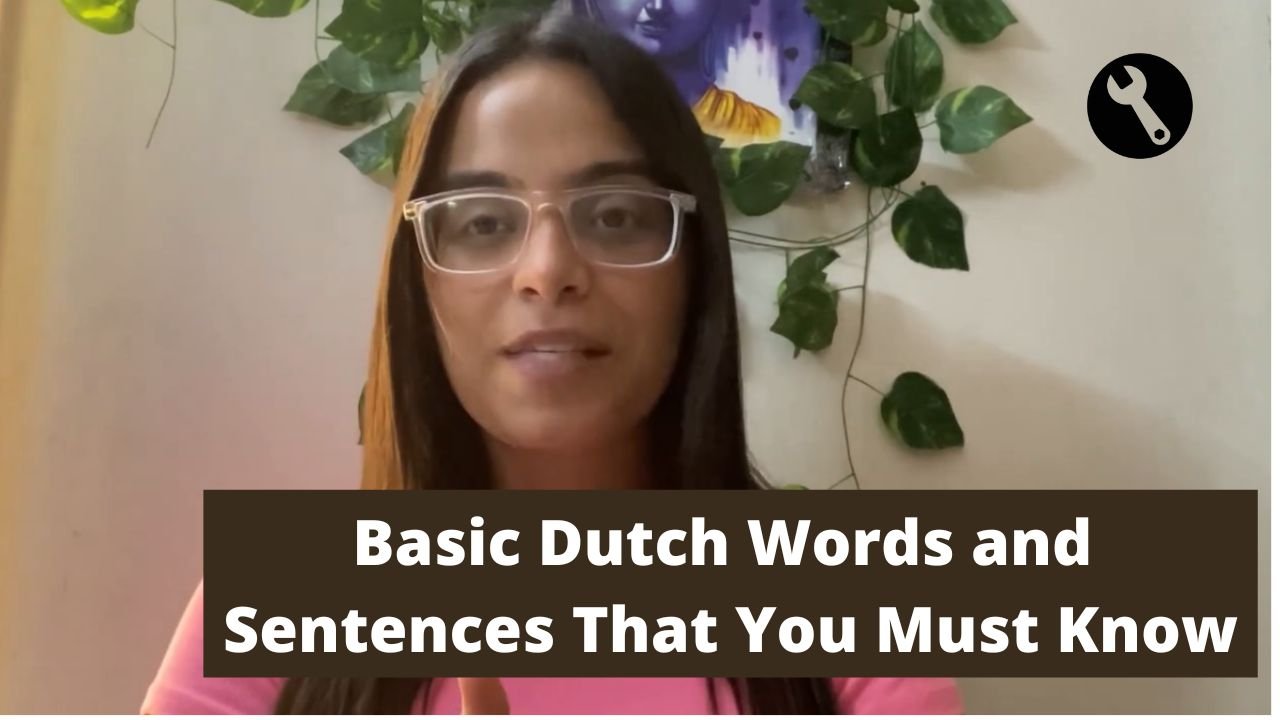Table of Contents
Introduction
Some fundamental Dutch phrases are more valuable than others.
Why not concentrate on mastering these words first? We chose to write this post for you specifically for that reason.
The essential Dutch phrases covered in this post will help you communicate better if you’re just beginning to learn Dutch or are already fluent.
If you’re soon traveling to a Dutch-speaking place, these will be especially useful to you.
Basic Dutch Words and Sentences That You Must Know
The following are the basic Dutch words and sentences that you must know:
My name is …
Mijn naam is ______ . (meyn NAHM is _____ .)
Use this phrase to tell someone your name.
What’s your name?
Hoe heet u? (hoo HAYT uu?)
Use this phrase to ask someone his/her name.
How much does this cost?
Hoeveel kost dit? (HOO-vale kost dit)
Use this phrase to know the cost of something.
How are you?
Hoe maakt u het? (hoo MAHKT uu hut?)
Use this phrase to ask someone how he or she is.
Hello.
Hallo. (HAH-low)
Use this phrase to greet someone.
Fine, thank you.
Goed, dank u. (GOOT dahnk uu)
Use this phrase to tell that you are fine.
I can’t speak Dutch
Ik spreek geen Nederlands. (ick SPRAYK gayn NAY-dur-lahnts)
Use this phrase to tell someone that you can’t speak Dutch.
Do you speak English?
Spreekt u Engels? (SPRAYKT uu ENG-uls?)
Use this phrase to ask if that particular person speaks English.
Is there someone here who speaks English?
Spreekt hier iemand Engels? (SPRAYKT heer EE-mahnt ENG-uls?)
Use this phrase to ask if someone speak English in that area.
I’m lost
Ik ben verdwaald. (ick BEN vuhr-DWAHLT)
Use this phrase to tell someone you are lost.
I don’t understand
Ik begrijp het niet (ick buh-GRAYP hut neet)
Use this phrase to tell someone if you don’t understand something.
Where is the toilet?
Waar is het toilet? (wahr is hut twah-LET?)
Use this phrase to ask for the toilet.
I lost my wallet.
Ik heb mijn portefeuille verloren. (ick HEP meyn por-tuh-FUH-yuh vuhr-LOH-run)
Use this phrase to inform about losing your wallet.
Basic Dutch words that you should know:
- Good morning – Goedemorgen. (GOO-duh-MORE-gun)
- Good evening – Goedenavond (Goo-duh-NAH-vunt)
- Good night – Goede nacht (Goo-duh-NAHGt)
- Help! – Help! (HEHLP!)
- Good night (to sleep) – Slaap lekker (SLAHP LECK-uhr)
- Good afternoon – Goedemiddag (GOO-duh-MIH-dahgh)
Conclusion
We hope these foundational words and phrases will improve your ability to speak Dutch confidently.
The first few times won’t be simple, so practice is the only and best option.
And always remember to prioritize the most important terms first rather than attempting to memorize all the phrases we shared with you today.






0 Comments